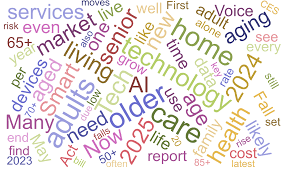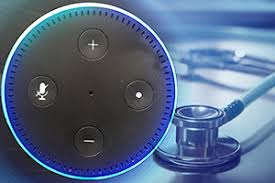The growing ecosystem of devices and products serving peoples’ health and well-being shows us that innovators already see the opportunity to serve the fast-growing market for self-care among people 50 years of age and up.
For nearly twenty years, one thing has felt inevitable: when boomers reach “old age,” senior living demand will surge. And yet ..
ChatGPT Health builds on consumer use of today's ChatGPT so responses are informed by your health information and context.
The prize honors .lumen’s Glasses for the Blind, an AI-based device that applies autonomous driving technology adapted for pedestrians. Using computer vision and local processing, the headset understands the three-dimensional environment in real time without relying on the internet or pre-defined maps and guides the user through subtle vibrations indicating a safe direction to follow.
The United States faces a fundamental mismatch between surging demand and insufficient capacity.

 The B
The B January 2026 is just around the corner. And so will begin the wave of
January 2026 is just around the corner. And so will begin the wave of  The aging population has significant implications. Consider a few assumptions:
The aging population has significant implications. Consider a few assumptions:  Future staffing demand will force industry to rethink care strategies. According to BLS, the industry will need
Future staffing demand will force industry to rethink care strategies. According to BLS, the industry will need  Lifespan versus healthspan – a worrisome difference of 12.4 years in the US. While many older adults may live longer, well into their 80’s, they may be living with chronic diseases such as diabetes, heart disease and cancer. That difference, known as healthspan, may be as much as 12.4 years in the US, the worst globally, according to
Lifespan versus healthspan – a worrisome difference of 12.4 years in the US. While many older adults may live longer, well into their 80’s, they may be living with chronic diseases such as diabetes, heart disease and cancer. That difference, known as healthspan, may be as much as 12.4 years in the US, the worst globally, according to